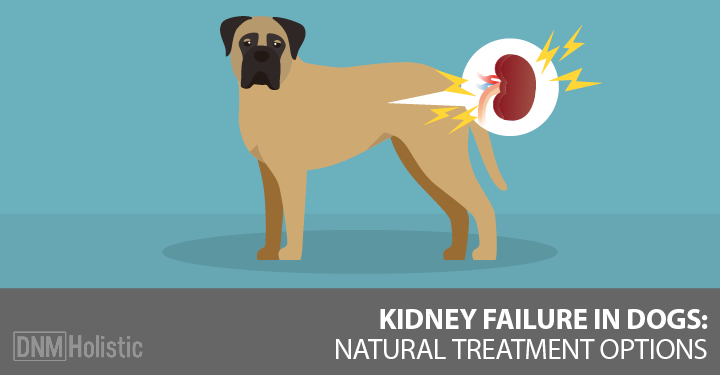Free Info For Choosing Kidney Failure In Dogs
Free Info For Choosing Kidney Failure In Dogs
Blog Article
Omega-3 Fatty Acids May Help Pets And Felines With Their Joint Health.
Omega-3 fatty acrs, EPA Eicosapentaenoic as well as DHA docosahexaenoic acids are important to maintain and improve joint function in dogs and cats. The way they can help is:
Anti-inflammatory Properties
Reduce Inflammation
Function Omega-3 fatty acid has strong anti-inflammatory effects. They decrease inflammation by reducing the production of pro-inflammatory cytokines (and eicosanoids) that are molecules.
Omega-3s help reduce joint inflammation and relieve pain and swelling caused by ailments like arthritis. This makes movement more comfortable for pets, improving their quality of life.
Joint Lubrication and Health
Improved Joint Lubrication
Function Omega-3 fat acids help maintain the health and lubrication of synovial fluid. This is the fluid used to lubricate joints.
Benefits: A better lubrication can result in smoother motion of joints and reduce friction. This can also help reduce wear and tear to the cartilage. This is especially beneficial to pets with joint issues or those who are at risk of developing them.
Cartilage Protection and Repair
Cartilage Protection:
Function: Omega-3s help to maintain the health of cartilage through lowering enzymes that degrade cartilage.
Benefits: Protecting cartilage from degradation helps maintain joint integrity and helps slow the progression of joint disorders such as osteoarthritis.
Immune System Support
Immune System Regulation:
The function of Omega-3 acids is to regulate immune responses, creating an equilibrium in inflammation.
Benefits: A well-regulated immune system is better able to deal with joint health issues, and can help prevent excessive inflammation and further joint injury.
Enhanced Mobility and Comfort
Better Mobility
Omega-3s can help your pet move easier by decreasing inflammation and preserving joint structures.
Benefits: Pets with health issues, such as elderly ones or those with arthritis, usually show better mobility and less pain leading to an active and more comfortable life.
Additional Health Benefits
Overall Health
Function The Omega-3 Fatty Acids promote cardiovascular, skin and hair health for pets.
Benefits : A pet that is healthier will likely be more active and will have better joints over time.
Use and Considerations
Dosage, administration and dosage The dosage of Omega-3s that is appropriate for your pet depends on its weight, size and health issues. Follow your veterinarian's advice or the instructions listed on the label of the product.
Sources of Omega-3s Top-quality fish oil supplements are a popular source of EPA and DHA. Choose products specially formulated for animals to ensure safety.
Omega-3 supplements have a generally beneficial effect for animals. However, some could develop stomach issues and/or fishy breath. It is possible to minimize side effects by starting at the lowest dosage, and then gradually increasing the dosage.
Conclusion
Omega-3 fat acids are beneficial to the joint health of cats and dogs. Their ability to shield cartilage and increase joint lubrication and anti-inflammatory properties contribute to a more efficient joint function. Regular supplementation will improve mobility for pets and encourage a healthier life. Take a look at the top rated naturalpetsupplements.com.au supplements for site tips including pet ear supplements, pet digestive enzymes, kidney disease in dogs, pet supplements for active pets, pet dental health, pet calming supplements, natural cat supplements, pet supplements for pets with shedding problems and more.
What Is Omega-3 Fatty Acids? How Do They Work To Help Pets And Cats Suffering From Kidney Failure?
Omega-3 fatty acids, EPA and DHA in particular (docosahexaenoic and eicosapentaenoic fatty acids) have numerous advantages to kidney health and well-being. The way they can help treat kidney disease is as follows:
Anti-inflammatory Properties
Reduced inflammation
The function: Omega-3 fats have a strong anti-inflammatory effect and reduce the production of proinflammatory cytokines.
Benefits: The omega-3s are able to reduce the inflammation of the kidneys. This can prevent kidney damage from progressing and help improve the functioning of kidneys.
Blood Pressure Regulation
Lowering blood pressure:
Function: Omega-3 fats aid to control blood pressure by increased vascular function and also by reducing inflammation in the system.
Benefits A lower blood pressure level can reduce the strain on kidneys, assisting to stop the progress of kidney disease and safeguard the remaining kidney function.
Proteinuria Reduction
Reducing Proteinuria:
Function: Omega-3s decrease the leakage into the urine of protein, also known as proteinuria. It is a frequent problem in kidney disease.
Reduced proteinuria can help to reduce further kidney damage.
Glomerular Filtration Ratio (GFR), Preservation
Supporting Kidney filtration:
Function Omega-3 fat acids ensure the integrity of the glomerular filterate that is the method by which kidneys filter blood.
Benefits Maintaining a GFR 50% is crucial in halting the progression of the chronic kidney disease.
Appetite Stimulation (nutritional Support)
Improving appetite:
Omega-3s are an excellent method to increase the appetite and nutrition intake of pets suffering from kidney failure.
Benefits: A healthier nutrition intake can boost overall health and aid kidney-related pets maintain their body weight and muscle mass.
Cardiovascular Health
Supporting Heart Health
The function of Omega-3 fatty acid support cardiovascular health, through lowering blood pressure and inflammation and improving the lipid profile.
Benefits Improved cardiovascular fitness may lower the risk of complications from kidney failure, such as heart ailments, and improve your overall health.
Antioxidant Effects
Reducing Oxidative Stress:
Function: Omega-3 fatty acids have antioxidant properties that can help in reducing kidney oxidative stress.
Benefits: Lower the oxidative stress of kidney cells from damage, leading to improved kidney function.
Use and considerations
Dosage: The amount of omega-3 fat acids will be determined by the weight, size and health needs of your pet. The veterinarian's recommendation or the product's label is crucial. Omega-3s from fish oil can be found in supplements designed for pets.
Omega-3 supplements that are available for pets are available in various forms. Capsules, liquid oils or chews are all options. You should choose a product that is of high-quality to ensure its safety and effectiveness.
Omega-3 supplements are generally safe for pets, but they can cause stomach upsets. You can minimize the negative effects by starting with the lowest dosage, and then increasing it over time. Important to keep an eye out for any adverse effects, like vomiting or diarrhea.
Conclusion
Omega-3 fatty acids provide substantial benefits in managing kidney failure in dogs and cats. Their anti-inflammatory, blood pressure-lowering, proteinuria-reducing, and appetite-stimulating properties help support kidney function and overall health. Omega-3 supplements can slow down the progression of kidney disease and increase the quality of life of animals suffering from kidney failure. See the top treatment for cushings disease in dogs advice for site info including pet health supplements, pet health supplements, pet marshmallow supplements, pet echinacea supplements, pet coat supplements, holistic pet supplements, pet supplements for pets with skin tumors, pet boswellia supplements and more.
Oregano Oil Assists With Yeast Infections In Cats As Well As Dogs.
Oregano is often used to treat yeast infections in cats and dogs because of its powerful antimicrobial qualities. This oil is especially effectively against fungi such as Candida. Here are a few ways that oregano oils may treat yeast infections.
Antifungal Properties
Active Compounds:
Oregano oil is a potent antimicrobial agent which contains carvacrol and thymol.
Benefits: These compounds have been proven to slow down the spread and growth of yeast-related infections such as Candida species.
Antimicrobial Activity
Broad-Spectrum Action:
Oregano oil is a potent antimicrobial agent that has a wide spectrum of activity. It is used to treat a variety of pathogens including bacteria and molds.
Benefits: By targeting fungal overgrowth, it helps to reduce yeast infections in dogs and cats. This is especially true for sensitive areas such as the ears and skin.
Anti-inflammatory properties
Reduction of Inflammation:
Function: Oregano oil has anti-inflammatory properties that can help alleviate symptoms associated with yeast infections. This includes redness and itching.
Benefits: The essential oil of Oregano helps in decreasing inflammation. It can also promote healing of skin irritations and mucous surfaces that are affected by the fungus.
Support Immune Function
Immune Modulation:
The function: Oregano oil supports immune function by strengthening your body's defenses against infections.
Benefits: Increasing the immune response allows the body to better fight off illnesses, including yeast.
Utilization and Recommendations
Topical Use: Mix the oregano oil with a copyright fatty oil (such coconut oil or extra virgin olive oil) and apply it to the areas affected. The most common proportion of dilution is 1 to 2 droplets of oregano to a tablespoon of copyright oil.
Avoid ingestion. Oregano contains a high concentration. It should not be ingested by pets unless under the supervision of a vet because it is toxic in large amounts.
Patch test: Prior to application to the entire body, place the product on a small area to check for any sensitivities or other adverse reactions.
Consultation with a Veterinarian consult a vet before using oregano oil for yeast diseases in pets. They will be able to provide you with advice on the proper dosage and method of application, as well as potential dangers, based on the health requirements of your pet.
Also, you can read our conclusion.
Oregano oil is antimicrobial and has properties that make it a natural treatment option for yeast infection in dogs and cats. Its ability to combat fungal overgrowth, decrease inflammation, and boost immune function could aid in managing yeast infections effectively. Use it with caution and under the supervision by a vet to ensure that your pet is safe and effective. Oregano oil is best used under veterinary supervision as part of a comprehensive treatment plan for treating yeast illnesses in dogs. Follow the best dog skin allergy treatment for more examples including pet health supplements, natural pet supplements, pet supplements for rescue pets, pet supplements for pets with fear of death, pet hesperidin supplements, pet supplements for pets with fear of injury, pet vitamins australia, pet supplements for pets with fear of other animals and more.